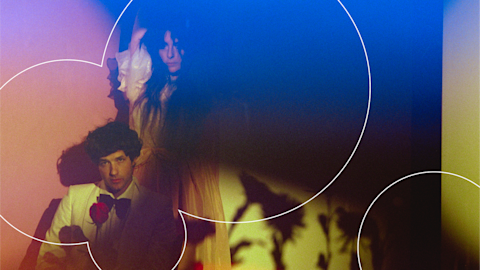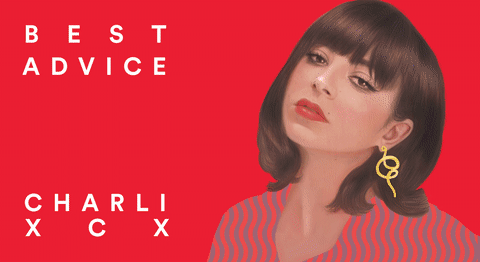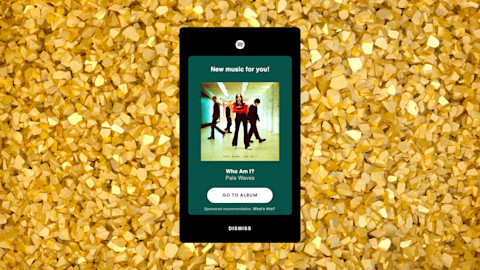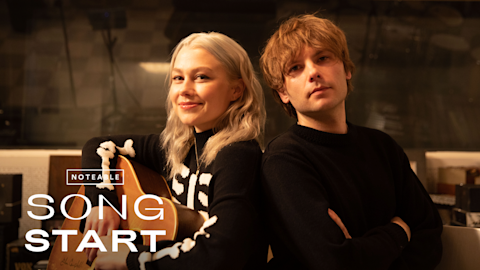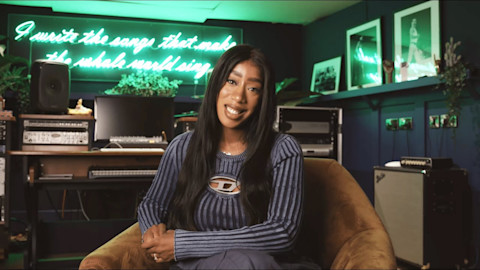In the digital age, the ways you can share your music and your message are almost endless. You can self-promote on countless platforms, basically putting yourself out on a virtual stage and hoping people will listen. But the dynamics completely shift once someone else shines a spotlight on you and encourages others to spread the word. Landing digital or print articles about you and your music is a crucial way to find potential fans and grow your audience. Such press opportunities tend to arise thanks to the behind-the-scenes hard work of music publicists. Although doing publicity isn't a glamorous job, it is a major part of the promotional process for all burgeoning artists.
In a nutshell, publicists primarily handle getting print and online press for artists—placing longer pieces such as interviews and features; securing audio or video premieres and album reviews; pitching journalists on story ideas; and helping their clients find their way to inclusion in trend features. And publicists can also help artists with big-picture career guidance, such as determining a compelling narrative, or warn them against potential image-tarnishing pitfalls. In short, publicists offer informed perspective to ensure their clients put their best foot forward.
"Loosely, a musician needs a publicist when they believe they’re doing something the press might be interested in," says Nathan Walker, publicist at Riot Act Media, which reps Anna Burch, The Coathangers, and David Bazan.
However, this is no one-size-fits-all endeavor. Press needs vary significantly from artist to artist, and change as musicians get deeper into their careers. The nuts and bolts of doing publicity also require juggling multiple priorities. Setting up a profile piece in a national magazine is a far different process than a local alt-weekly preview—which, in turn, differs from premiering a song on a major website.
We asked three industry veterans—Walker, Clarion Call Media's Caroline Borolla, and Speakeasy PR's Monica Seide—to talk about how artists can find the right publicist to join their team.
Do: Know a publicist’s job has limits.
In addition to the duties outlined above, publicists can offer constructive marketing advice. "We provide insight into how best to tell your story; things you should avoid talking about; which singles we feel the press will react to in a positive way; and more," Walker says.
However, helping bands get radio airplay or book tours—and, he stresses, providing "counseling"—isn't part of their job description.
"I try to tell people that I’m 50 percent cheerleader and 50 percent secretary," Walker says. "I start out in the cheerleader role, hoping to get the press interested in your music for the right reasons. If that works, I move into secretary mode, making sure that the journalists have everything they need to properly cover your music."
Don't: Think you need a publicist right away.
"You do not need a publicist if you're a relatively new band who has yet to put out an album, can't tour outside of your hometown or your general geographic area, and if the cost of hiring a publicist is going to hurt you financially," says Seide, who's repped Tool, Baroness, and the Melvins.
For artists who fall into this category, a DIY publicity approach is key. Reach out and connect with local music writers and editors, as well as smaller regional and national music blogs, and maintain a robust social-media presence. "There is a lot that can be done without bringing a publicist on board," Seide says.
Playing local shows is also a good way to get your name out there and build a C.V. "Cultivate relationships with other bands in your area and play shows," says Borolla, who's worked with We Were Promised Jetpacks, Haley Bonar, and Wire. "Then when you do come to a publicist, you have a small foundation in place."
Do: Hire a publicist when your career gains momentum.
"To me, a musician does not need a publicist if they don’t intend to make music their full-time gig," Walker says. In other words, when an artist has been around for a while and is becoming more established—and taking the leap and making music a career—having a publicist onboard can help make the transition easier.
"[Let's say] the local papers have covered you, some websites have started writing about you," Seide says. "Now it's time to talk with a publicist to see what he/she thinks is possible as you try to garner more national attention."
Do: Research publicists before reaching out to them.
First and foremost, look for publicists who work with artists who have a similar sound or aesthetic to yours. For example, someone with a roster primarily focused on new indie-rock bands might not be the best fit if you’re an electronic artist. Also, take note of publicity campaigns you particularly liked or that align with your own goals, and find out who's behind them.
Getting referrals is always a smart move. "Depending on the size of the band, asking other artists who they work with, or having your manager or booking agent make suggestions, is also a good way to find the right person," Seide says.
Consider publicist research similar to the kind of digging you might do on a company before a job interview. "Look to artists who are succeeding in a way you could see your career following," Walker says. "Who do they work with?"
Do: Send a brief, concise introduction.
First impressions matter. "Introduce yourself to your publicist in the same way you’d present yourself to the press," Walker says. "It will let us know how you want the world to perceive you as an artist."
That involves a concise note—a couple of paragraphs is preferable—containing pertinent info. "I always appreciate a personal email with a link to music, some info about what the band's plans are in terms of new releases and touring, as well as a brief bit of info on the band's history," Seide says.
Send a stream of music (preferably finished tunes) rather than a download, and reach out to publicists via email, which can be found on publicity company websites or on the Facebook pages of other clients.
Don't ping publicists casually on social media, and never send a mass email fishing for a publicist; Seide says she deletes these right away.
Above all, don't be afraid to brag about yourself a little bit. "I feel like a lot of artists aren't necessarily comfortable [selling themselves], and that's why they come to us," Borolla says. "But at the end of the day, you really are your best advocate."
Do: Find someone you mesh with personally—and, more important, trust.
At the end of the day, you're working with a publicist to tell your unique story, which involves making yourself vulnerable.
In fact, the publicist-artist relationship often involves having honest and even difficult conversations. Being comfortable enough with someone to keep the lines of communication open is crucial to cultivating a successful relationship.
"If there's something you want to see happen, let the publicist know—and conversely, listen to what the publicist says when they explain if they think that's an attainable goal or something that might take a while to work," Seide says. "I always try to be honest, even when I know it's not what the person wants to hear, which can be tough at times."
Don't: Hire someone who makes big promises.
"I'd steer clear of anyone who makes promises to you," Seide says. "The only promise a publicist can make is that they'll work hard on your behalf."
This goes double for any publicist who says they can get you press in a specific publication. "If they’re promising you coverage at a well-known outlet, run," Walker says. "No publicist can guarantee any coverage."
Do: Manage your expectations.
"Hiring a publicist doesn't guarantee you a TV booking or the cover of a magazine you think you're a good fit for," Seide says.
A lack of press doesn't necessarily mean your publicist isn't doing their job—or that journalists don't like your music. Editorial priorities, limited budgets and space, and writers stretched thin can make press coverage elusive. Keeping all this in mind can help inform how you approach promotion.
"You can't be dependent upon a publicist to be the end-all be-all, especially in 2018," Borolla says. "Like anything in life, you can't put all your eggs in one basket. And just because you don't get a lot of press love, it doesn't mean you can't get success on other levels."
—Annie Zaleski
